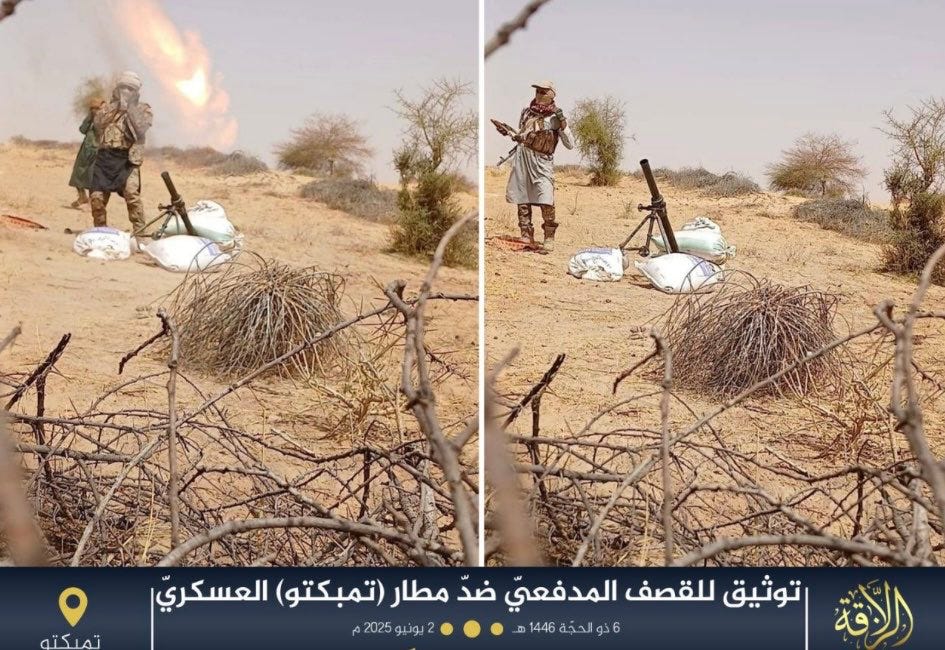Security Risk Monitoring and Threat Assessment of JNIM in Africa
Military Operations June 2025
In recent years, Saharan and Sahelian areas have become increasingly important in threat assessment and risk expansion, particularly concerning Salafist-jihadist terrorism.
This report examines and analyses the military operations of Jama’at Nasr al-Islam wal Muslimin (JNIM) in Africa.
Date: June 2025
Method: Monitoring of jihadist propaganda (videos, photos, statements, claims) and reports from sources in the field.
Organisations/groups:
Jama’at Nasr al-Islam wal Muslimin (JNIM).
Allied/Affiliated: Al-Qaeda.
Activity area:
Mali, Burkina Faso, Niger, Benin, Togo (activities have also been recorded in the past year in the Ivory Coast, Nigeria and Mauritania or on their borders).
Overview and Security Threat Assessments:
The many problems of popular discontent, economic and social vulnerabilities, etc. have been the basis of support for independence movements in the North in the past. They are also the basis for the recruitment of jihadist organisations today. The strongest of these is undoubtedly Jama'at Nasr al-Islam wal Muslimin (Group for the Support of Islam and Muslims - JNIM), a coalition of Salafist-jihadist rebel groups operating in the Sahel region of sub-Saharan Africa, particularly in Mali, Niger and Burkina Faso, but with attacks also conducted in recent years in Togo, Ivory Coast, Benin and Senegal. JNIM was founded in March 2017 by the merger of four Salafist-jihadist groups in the Sahel: Ansar Dine led by Iyad Ag Ghali, Ahmed Kouffa's Katibat Macina, al-Mourabitoun and the Saharan branch of al-Qaeda in the Islamic Maghreb (AQIM). The JNIM has become very adept at conveying the discontent and demands of the poorer sections of the population and ethnic minorities, particularly the Tuareg and Fulani. Since its inception, the JNIM has extended its operational territory throughout West Africa, conducting a sustained campaign of violence against civilians, local security forces, international armies and UN peacekeepers. The Qaedist affiliate in the area has managed to progressively insert itself into the complex Malian context, presenting itself as a credible and legitimate alternative to both the government in Bamako and the rebel movements.
The JNIM managed to operationalise local demands, while the responses to the insurgency failed to address the political causes of the conflict and encouraged human rights violations.


